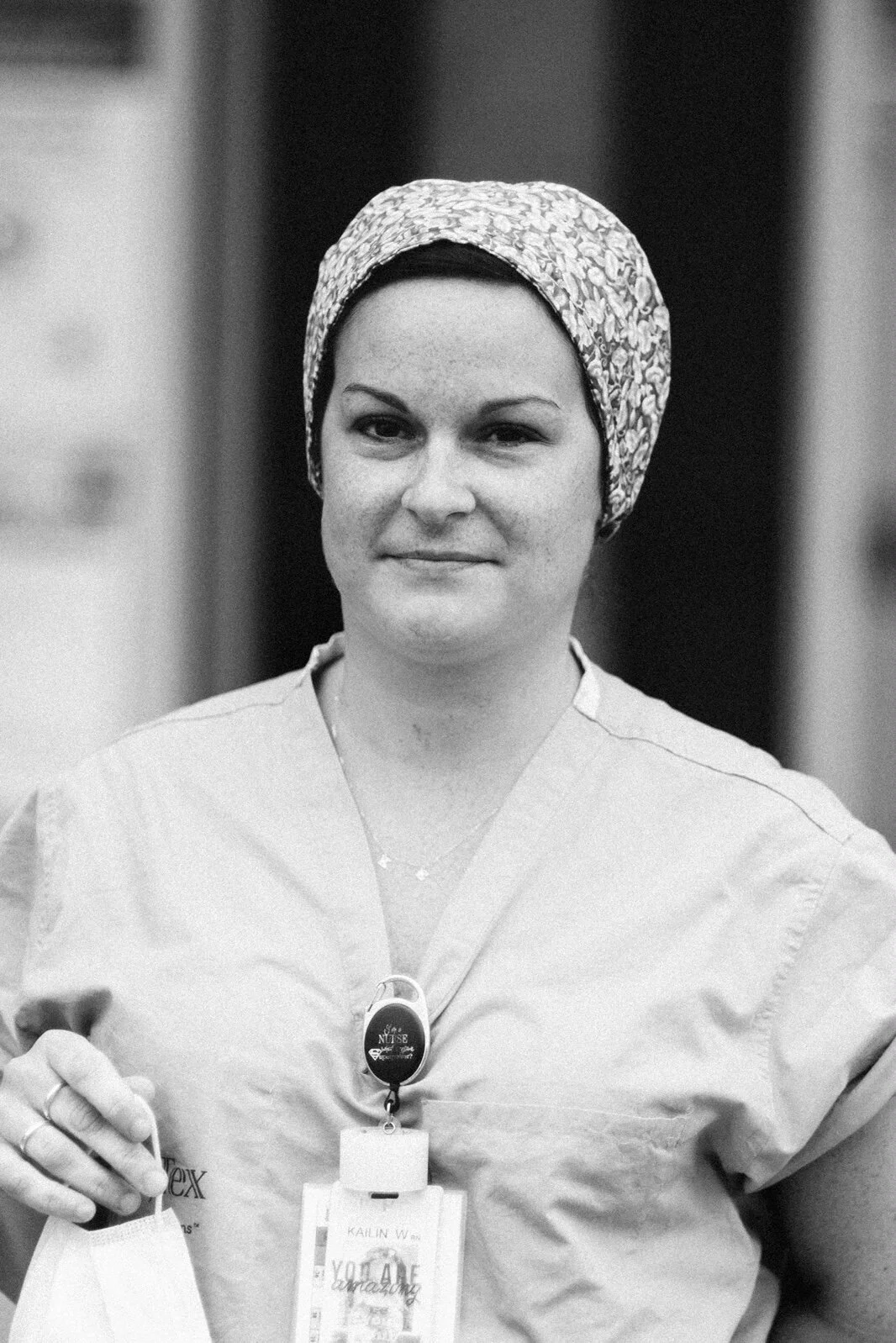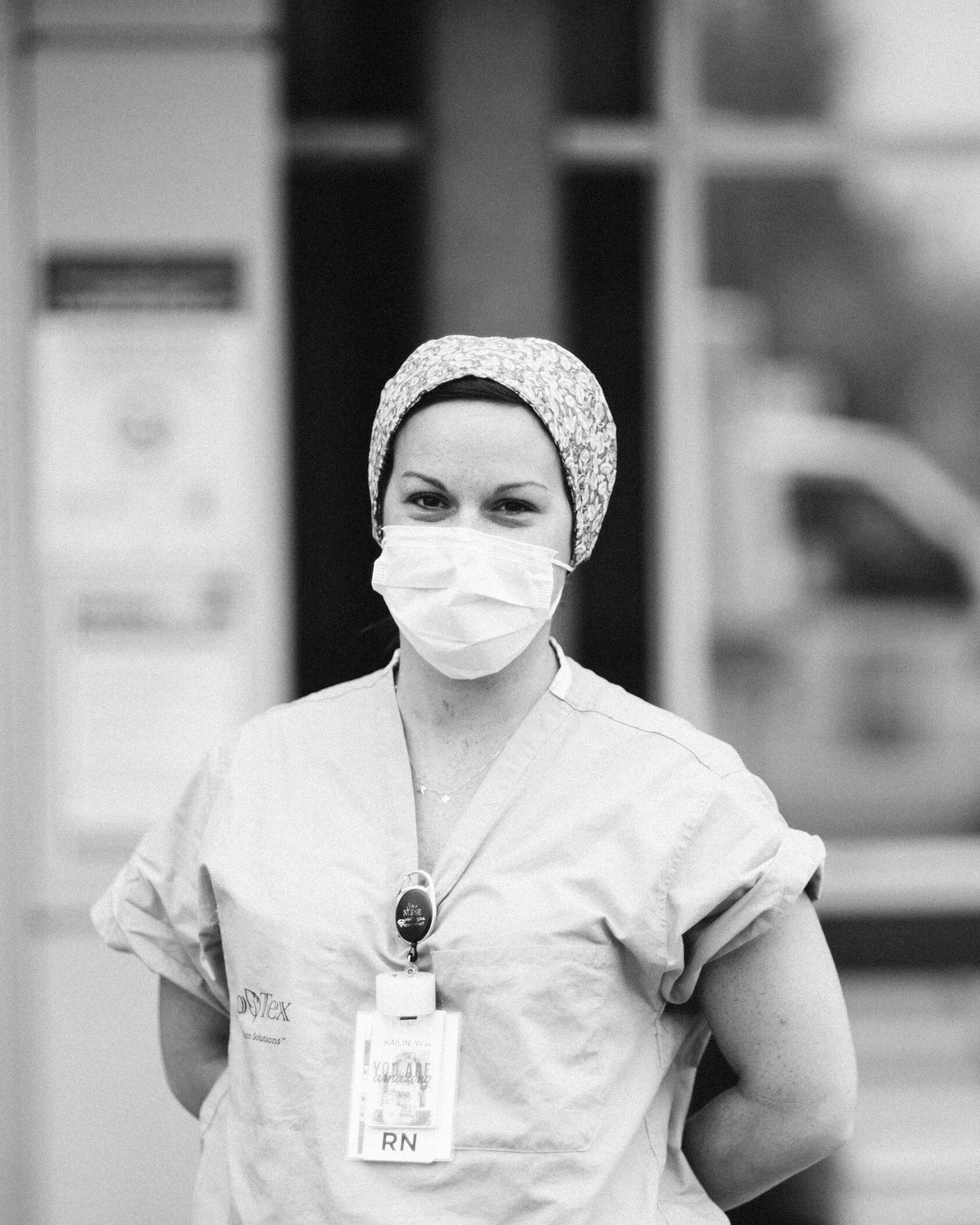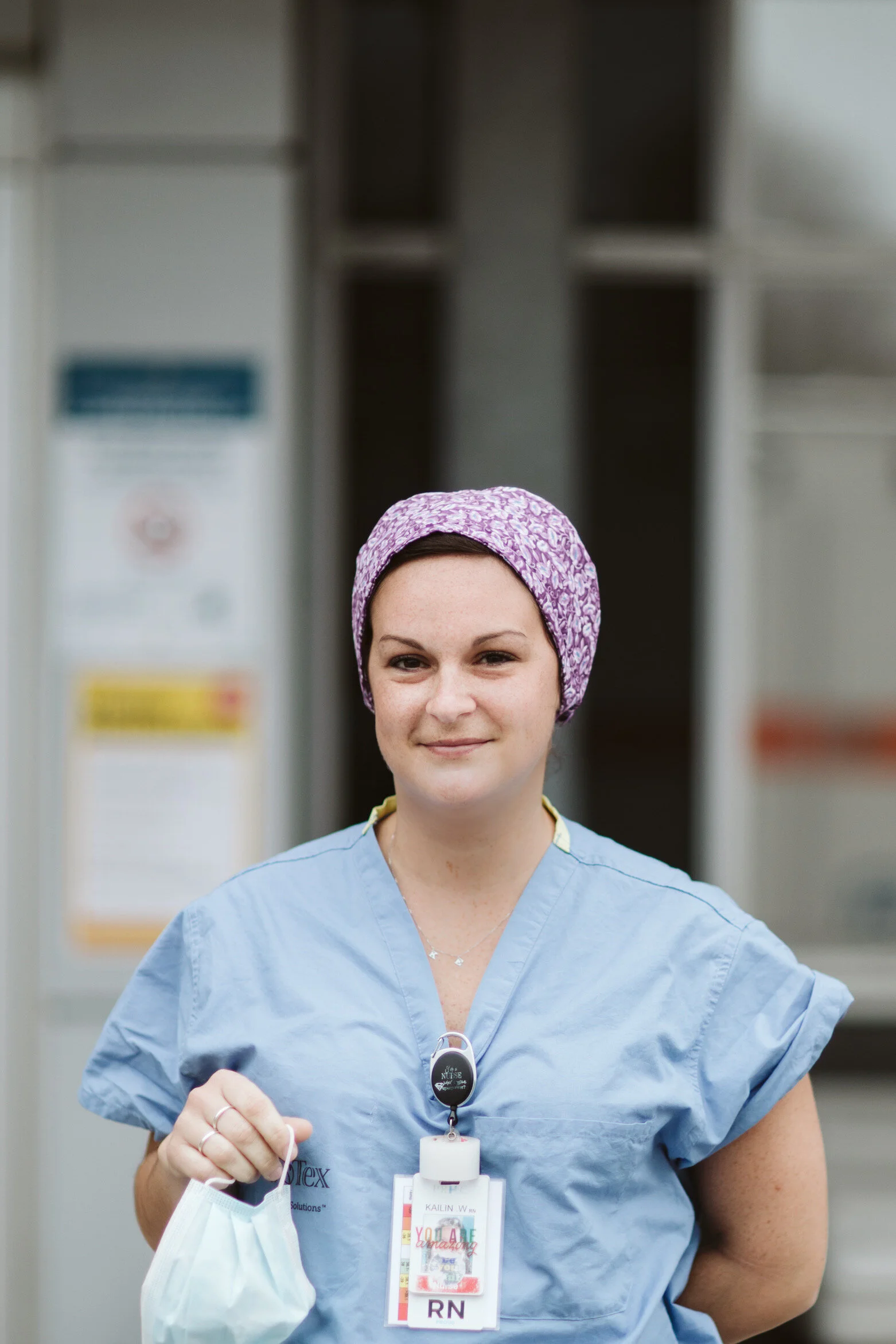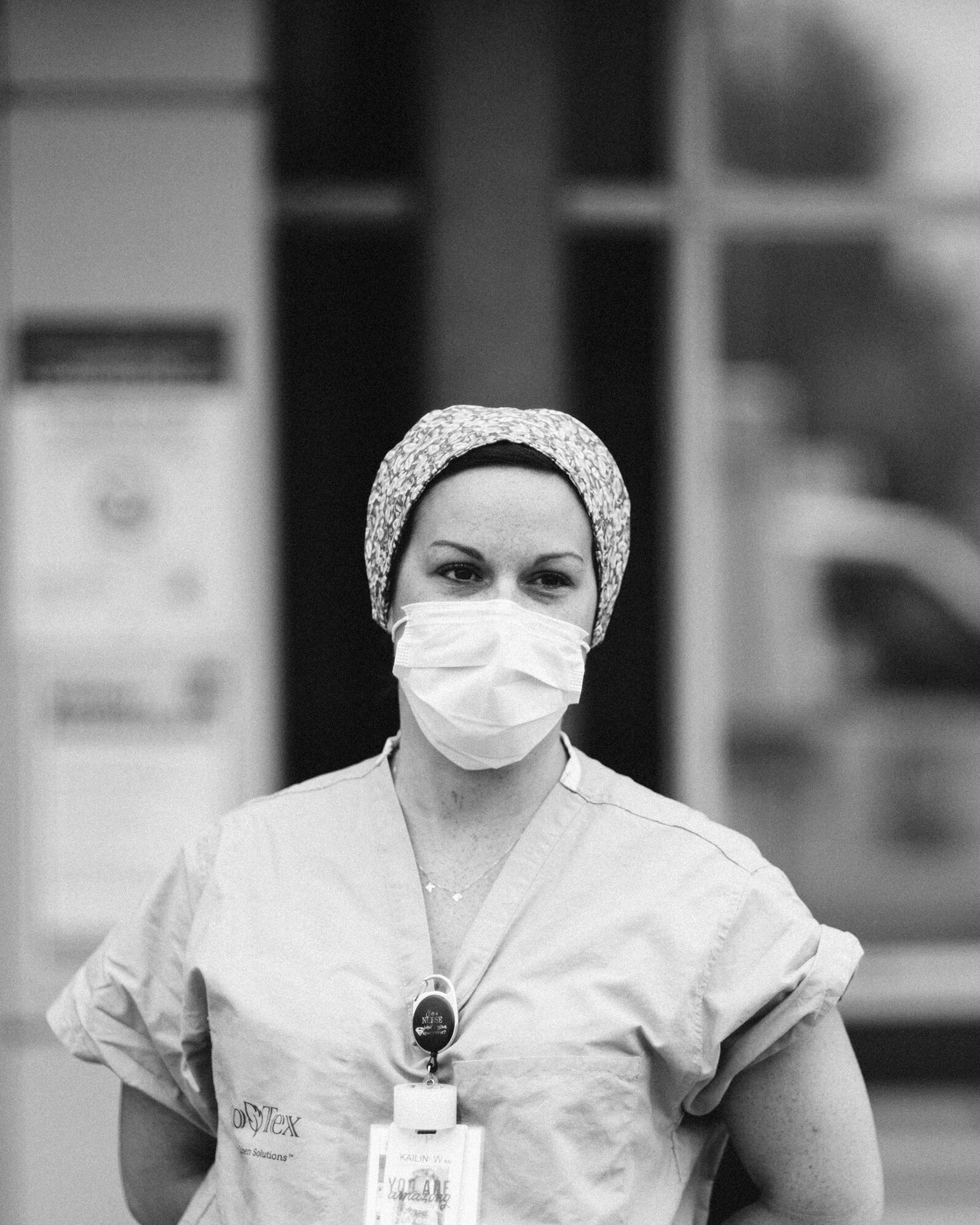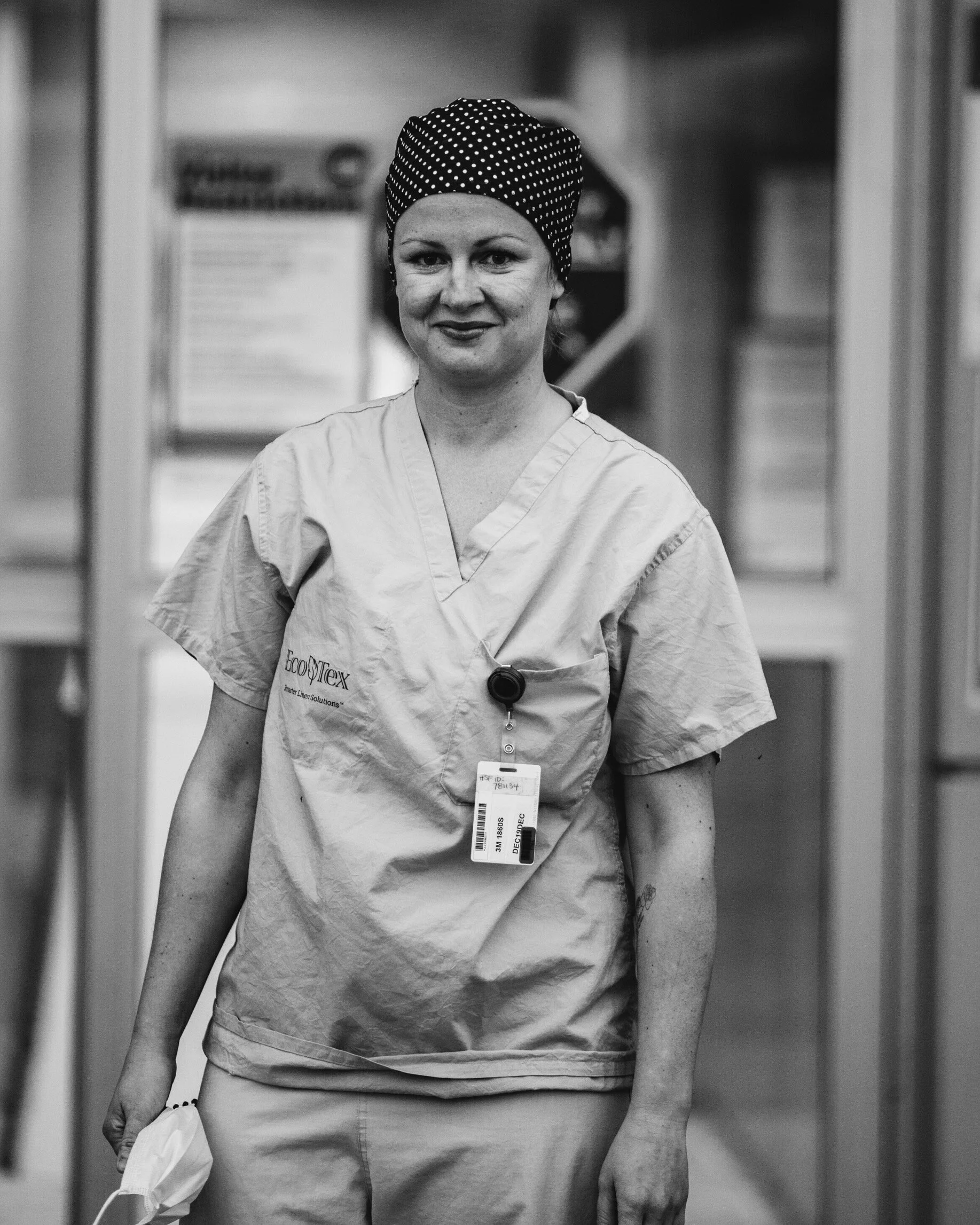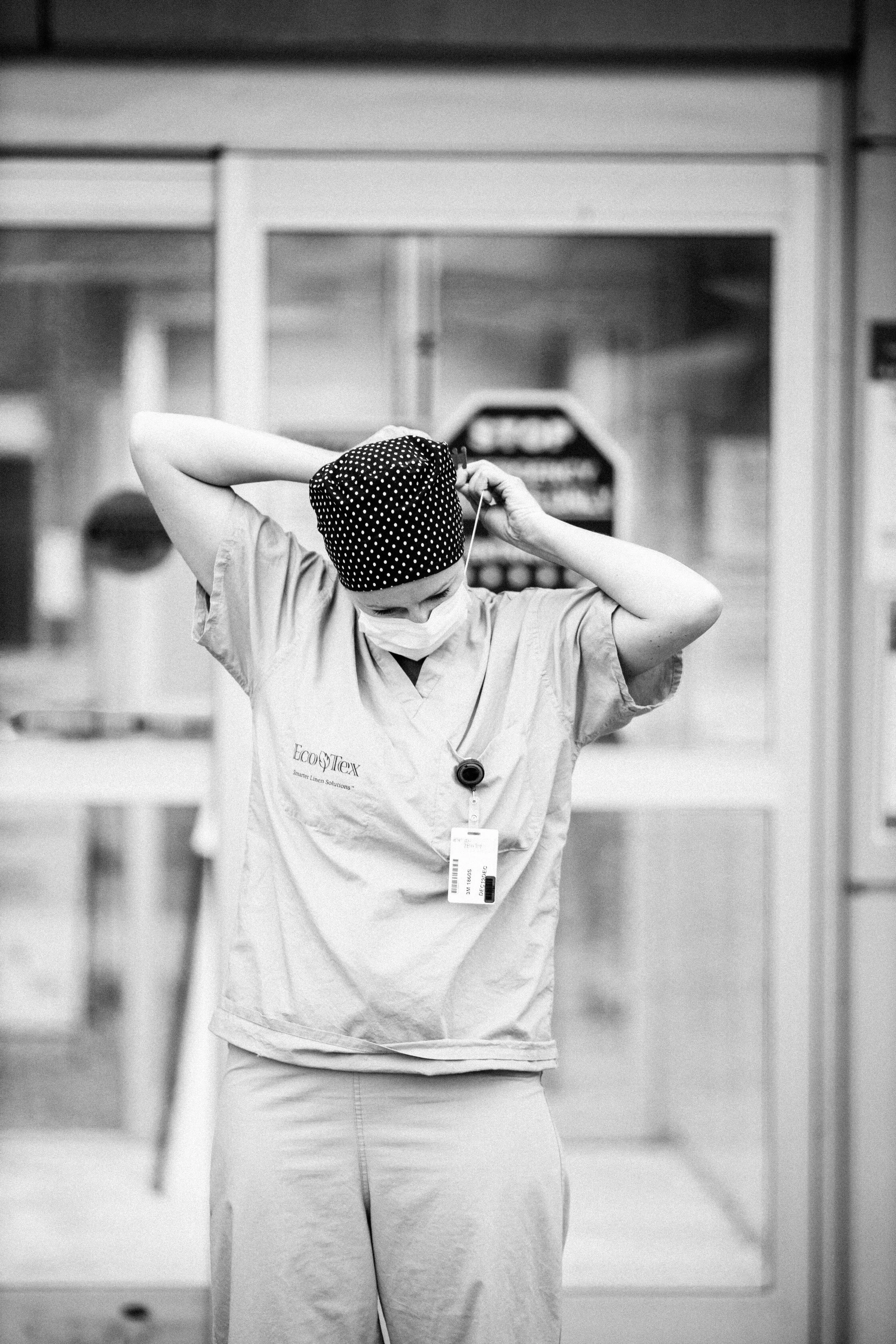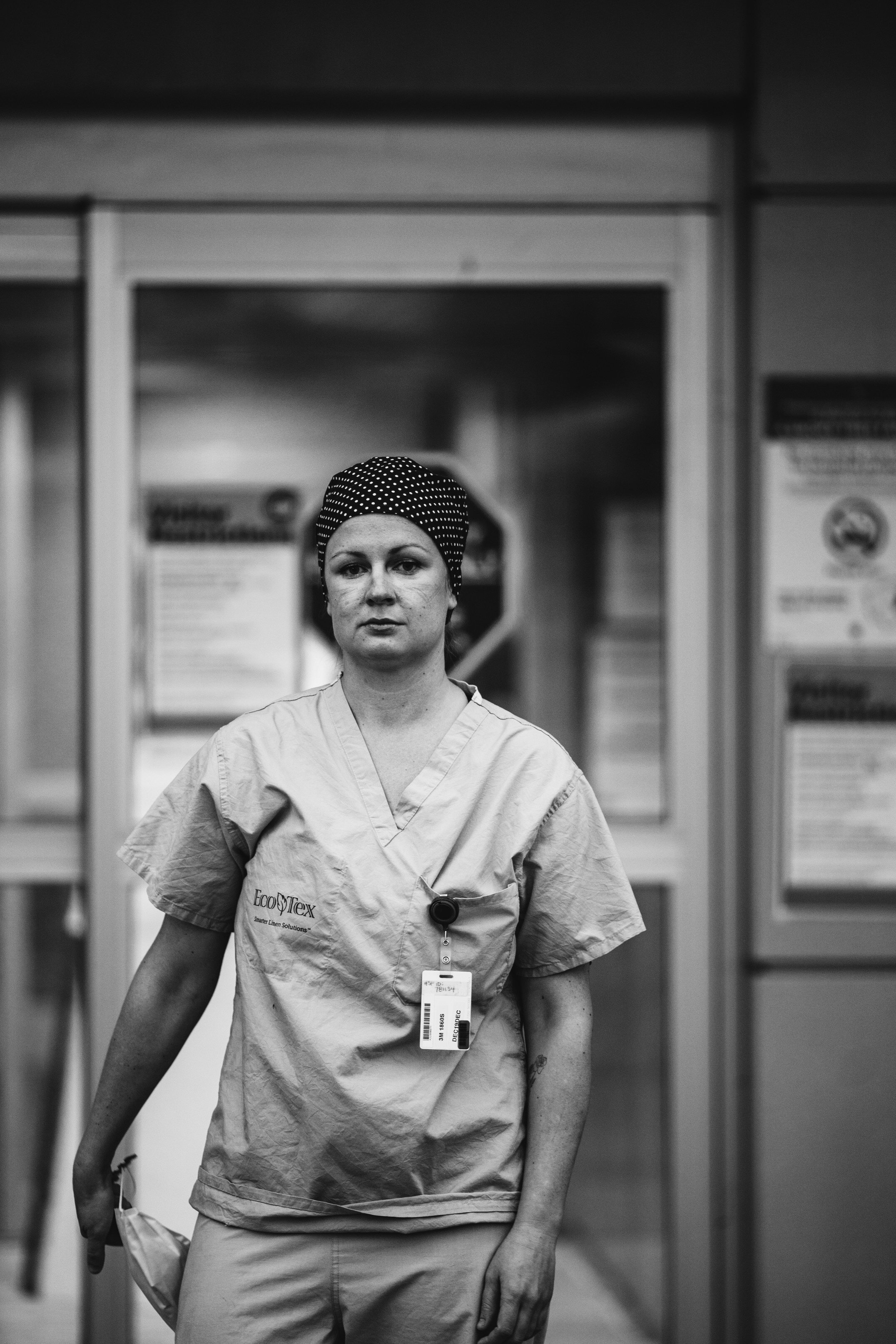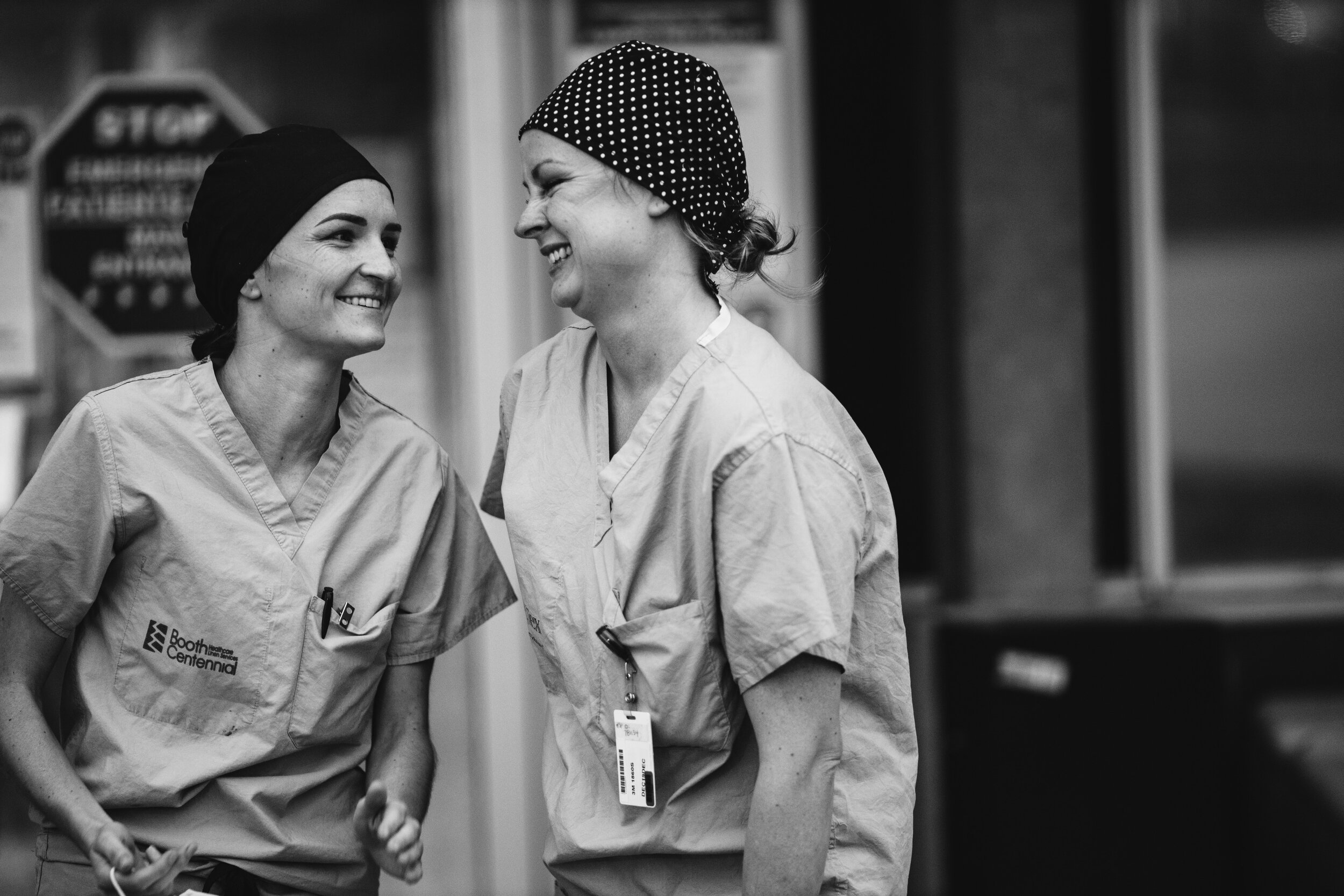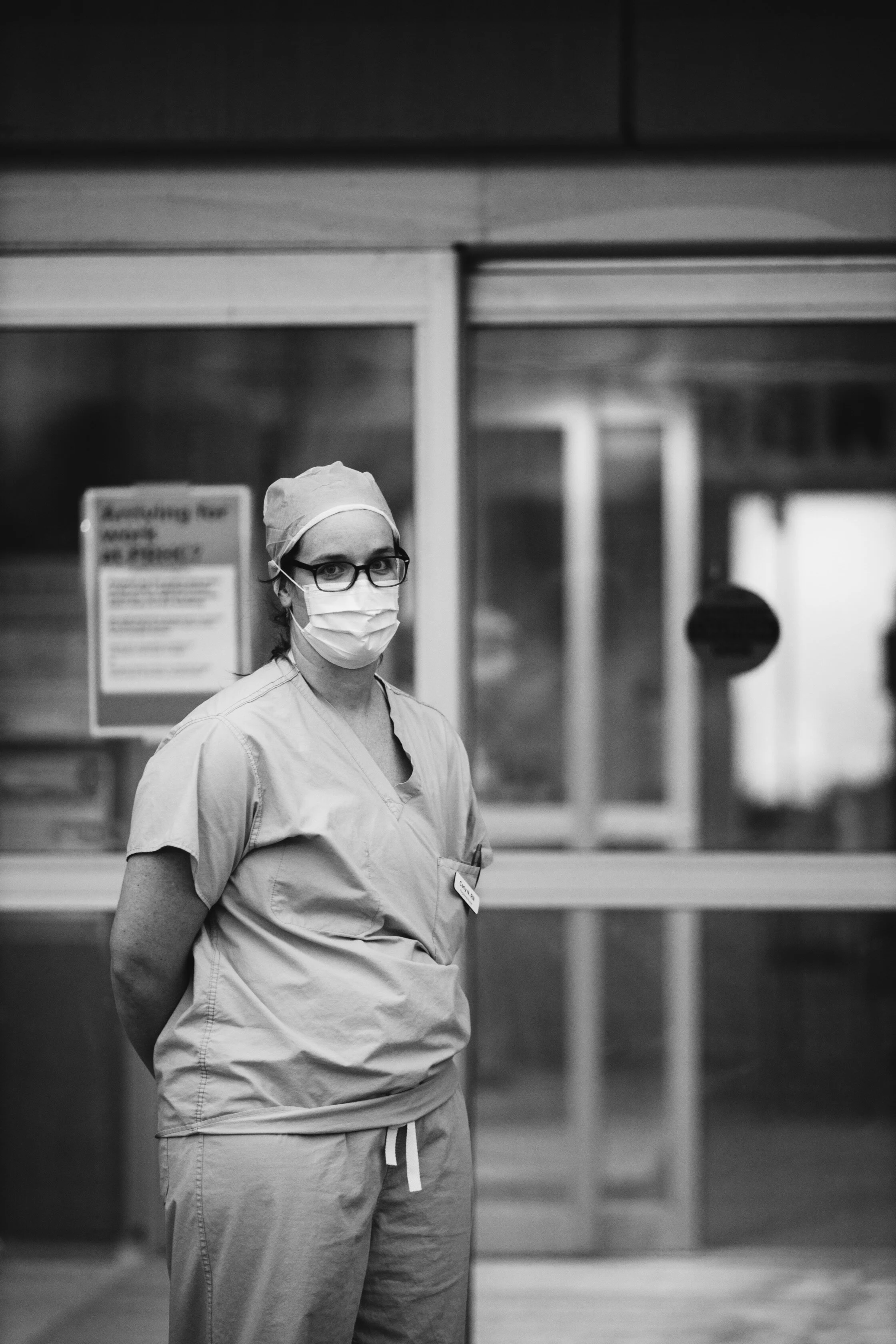Peterborough Blogs
With financial need expected to increase over the coming months, Trent University is continuing to fundraise for student relief support, which will aim to ensure that changes to a student’s financial situation do not become a barrier to accessing a Trent education.
Melissa Payne Dropped By Extendicare In Lakefield To Play A Song On Her Fiddle For Her Nanny & The Long Term Care Heroes
/Musician Melissa Payne dropped by Lakefield Extendicare on Wednesday (April 15th) after being inviting there to play as part of their community Honk For Our Heroes drive-by parade.
Playing there was extra-special for Melissa as her nanny resides there.
“Truth is I am guilty of not visiting as much as I say I will,” Melissa writes in a heartfelt Instagram post. “Nanny has had dementia for the past six years and the chances of her remembering this experience are very slim to none. But in this moment she was happy and excited and full of joy to see someone playing music for her. If there is one thing this pandemic has taught us it’s to cherish our moments. I know I’m not alone in saying I can’t wait to hug, hold and love a little harder my Nanny and all those I hold dear.”
You can watch Melissa’s “performance” below as she practised physical distancing outside the window while her Nanny watched with great pride from inside…
“Thank you to all the long term care heroes who are working so hard to keep our loved ones safe,” adds Melissa in her social media post.
You can also watch the video on our Facebook page…
Engage with us on social media on Twitter, Instagram and Facebook. Write to us at tips@ptbocanada.com. Sign up for PTBOBuzz newsletter here.
PRHC RN Kailin Wilson On Her Experience Being Redeployed To The ICU During Pandemic & Impact On Family
/In the third of a PTBOCanada series on the experiences of frontline healthcare workers in Peterborough produced by Mary Zita Payne, RN Kailin Wilson gives us a firsthand look on what it’s like being on the frontlines during the pandemic. Here is her experience in her own words…
February 2020. I wake up every morning to my children, I don’t start work for another 1-2 hours. I get them ready, fed and off to daycare and school. I have no anxiety, no pit in my stomach. I enjoy my job and I am excited to be at work doing what I love.
Fast forward to March 2020. I get the phone call that I am being redeployed to the ICU. It’s not foreign to me, I have worked there before. What is foreign is the fear and the anguish that comes over me. My first thoughts are, ‘My husband is a front-line shift worker, how are we going to do this?' Thankfully, his job has been more than understanding. I am going to have to adapt to a new kind of normal.
Kailin Wilson (photographed at PRHC by Mary Zita Payne)
My first day in ICU, I wake up with an unrelenting pit in my stomach. I’m nervous and rightfully so. My husband and I have come up with a plan of how I am going to return home. I will change in the garage, leave my belongings there and shower right away. I won’t pick up the kids from daycare because it is too risky to have them in such close contact with me. This is going to kill me I think—all I want to do after a hard day is hug my babies.
I’m not sure how I am going to feel going into this, I haven’t done it before. I have never cared for a patient that has or is suspected to have COVID-19. I walk into work and am asked a series of questions upon entering.
Everything is different at work.
Nobody is close because of physical distancing; we are all wearing masks and we try our hardest while caring for our patients to preserve PPE. None of this is normal. As nurses, we aren’t taught or programmed to limit our exposure, to make it worth our while to go into these rooms, “group our care” if you will.
Photographed at PRHC by Mary Zita Payne
I have never worried about the germs I bring home to my children. My background is the recovery room. Most patients are healthy, otherwise surgery would be cancelled. While I am at work, in the thick of this pandemic, the last thing on my mind is my anxiety or concerns.
My main focus is giving this patient the best possible care that I can. This is someone’s husband or wife, mom or dad. I care for them as if they were mine. But when I’m driving home from work, all of my anxiety and my greatest fear comes rushing over me.
Photographed at PRHC by Mary Zita Payne
What if I wasn’t safe enough? What if I didn’t have my N95 respirator sealed tight enough? What if the hand sanitizer I use multiple times a day didn’t do its job?
You see, my daughter was very sick as a baby.
She required ICU care at Sick Kids, which left her lungs with chronic inflammation. I can’t help but have this in the back of my mind. I mean, her favourite thing to do is to be with her mom all the time. How do you explain to a three-year-old to “physically distance” herself?
Nobody is perfect. No amount of PPE is going to protect us all from this virus. It doesn’t discriminate. It doesn’t care how healthy you are or how old you are. My biggest message to everyone is to follow the guidelines the government has set out for us. It is imperative that we as a community and country follow the rules if we want any sort of “normal” to return.
Photographed at PRHC by Mary Zita Payne
In my tenth year of nursing, this is beyond anything I could have ever imagined. But through it all I choose to hold my head high, and walk into work knowing that I can make a difference in someone’s day, someone’s care.
I fear that one day I will be the one to hold someone’s hand as they pass from this awful sickness. If this is your family member, your friend, or colleague, please know that they are with the best team of nurses and doctors I have had the pleasure of working with.
—Kailin Wilson, RN
(Mary Zita Payne, who is producing this series—you can read the first installment here and the second one here—has been documenting frontline healthcare workers on the frontlines on her personal blog.)
Engage with us on social media on Twitter, Instagram and Facebook. Write to us at tips@ptbocanada.com. Sign up for PTBOBuzz newsletter here.
PRHC Emergency RN Jennifer Massimo On Her Experience Working On The Frontlines & The Impact On Family
/In the second of a PTBOCanada series on the experiences of frontline healthcare workers in Peterborough produced by Mary Zita Payne, Emergency RN Jennifer Massimo gives us a firsthand look on what it’s like being on the frontlines during the pandemic. Here is her experience in her own words…
I have been an emergency nurse since I graduated in 2009. When I was a new grad, I had anxiety before going in for my shifts, because I never knew what I would be walking into. With the years of experience, I gained confidence and lost the pre-shift butterflies. I enjoyed my work despite the chaos that always came with each shift. I loved it.
Although each shift is different, it still feels like it’s the same. A controlled chaos, working through each complaint and concern, working with the most amazing colleagues to save lives, change lives, and provide comfort to people in their last moments. Though I love my patients, easily my favourite part of the job are my colleagues.
There are no humans quite like them. These men and women are energetic, sarcastic, knowledgeable, and hilarious. They truly are my work family. So while my shifts are exhausting, stressful and busy, I have always been proud to say I’m an ER nurse.
Jennifer Massimo (photographed at PRHC by Mary Zita Payne)
Something changed in the past couple months though. This Goliath virus started. It changed everything as we know it, and everything as I know it. I am back to feeling nervous to go in for my shifts, not knowing what I’ll be walking in to. I’m scared that I might miss one atypical COVID presentation, and could potentially expose a colleague to a covid positive individual.
Although we watch each other remove our personal protective equipment, I’m scared I will accidentally contaminate myself while removing it. What if my face shield was sitting too high? What if I didn’t have a good seal on my N95? I worry about my family. I’m scared that I will be an asymptomatic carrier, and expose my family to the illness. I’m worried that I’m already putting my family at risk by coming home after shifts.
Photographed at PRHC by Mary Zita Payne
We’ve prepared a separate living space in our basement in case I come home after a particularly bad shift and worry that I’ve been exposed. This worries me too, because with my children aged 3 and almost 2, what if me living away from them causes emotional trauma? I feel guilty and selfish that I haven’t moved to the basement yet, but I also worry about the emotional trauma I will have if I leave them too soon.
Each time I go in, I’m scared it will be the time that I know I have to live separately from my family. Even when I’m at home, I try to enjoy my family so much but I have a hard time engaging because I’m so worried about when I will have to go back to work, and potentially leave my family.
Photographed at PRHC by Mary Zita Payne
I hate admitting this, but I’m scared to go into patient rooms. I’m not scared of the person, I’m scared of the virus. I’ve always been one for physical touch. I hold my patients hands, listen to their every concern, hug family members, give high fives to my paediatric patients, and am by their side through their biggest crises. I have always been right beside them, giving my everything.
COVID has changed this.
I’m scared to be exposed to them, because I’m scared that I will end up bringing this home to my family. I’m scared for my patients. They don’t want to be in this situation just as much as we don’t want to be. COVID has changed the nurse and patient relationship. Families are restricted in their visiting, and it puts a toll on patients, nurses and doctors alike.
While I’m terrified of this virus, there are also some positive things that are undeniable. I love my work family. Although I am anxious before each shift, I also want to be there to provide physical and moral support. More than ever, I want to be with them and take this thing on as a team. I’ve always known we have an incredible team, but the leadership and camaraderie is amazing. Taking care of patients with suspected COVID takes a lot of man power, and I am so proud of everyone for stepping up and being there for one another.
This is sense of connection and support goes beyond the ER. More than ever, I feel that our community and the world are pulling together to battle. Nurses and doctors are working outside of their comfort zones to provide their skills wherever needed. Outside our doors, our other front line staff paraded their fire trucks, ambulances and police cars with lights and sirens to thank hospital staff at shift change.
Members of the community are stepping up to provide whatever PPE they have, and even making masks for people that enter the hospital. People are staying home, to stop the spread of COVID-19. It feels like the world is pulling together to combat this thing head on.
So while I’m nervous about what the future holds, and nervous about decisions for my family, I’m also so proud and thankful for everyone and their support, in whatever way they can give it, during this time. We are truly all in this together. So while I feel my job is very challenging right now, I’m thankful that I can provide support to my community in the best way I know how. And at the end of the day, I will always be proud to say I’m an ER nurse.
—Jennifer Massimo, Emergency RN
(Mary Zita Payne, who is producing this series—you can read the first installment here—has been documenting frontline healthcare workers on the frontlines on her personal blog.)
Engage with us on social media on Twitter, Instagram and Facebook. Write to us at tips@ptbocanada.com. Sign up for PTBOBuzz newsletter here.
PRHC Emergency RN Carly Neadow On What It's Like Working On The Frontlines & The Impact On Family
/In the first of a PTBOCanada series on the experiences of frontline healthcare workers produced by Mary Zita Payne, Emergency RN Carly Neadow gives us a firsthand look on what it’s like being on the frontlines during the pandemic. Here is her experience in her own words…
I started nursing in 2007, 13 years ago, being proud of my career choice and so excited to start my nursing journey. When you become a nurse, it becomes a part of who you are. It is not “just a job”, it becomes part of how you define yourself.
We commit to the job and our patients and are taught to advocate for our patients, putting their needs first. I never dreamt that one day I would have to worry about my career putting my family at risk. There are always risks in any job, but this virus (COVID-19) has brought so many new unknowns with it.
The entire world is in unchartered waters, and the frontline of healthcare is no different. I am so lucky to have the amazing support in my life, from my husband and children, parents, neighbours and friends, and my amazing sister and coworkers who are all battling these frontlines with me. Without them, I don’t know how I would be coping.
The hardest part about working through this is the unknown.
Carly Neadow (photographed at PRHC by Mary Zita Payne)
We do not know when/if/how hard this virus will affect our community/hospital/healthcare system. We do not know who it will affect: our parents, spouses, children, co-workers, or ourselves. A very respected colleague of mine described it as: “This must be how soldiers feel waiting to go into battle.”
The angst of waiting creates this ball in the pit of your stomach. Everyday I leave for work I worry that I may bring this home to my family. Everyday, I struggle with the battle of whether I should temporarily move out to keep my family safe, but what would that do to my children? They are 16 months and two and a half years old. They would not understand why mommy is not at home, and how long do I have to leave them for? We have no idea how long this will last. How do I just leave my husband to care for our children for an indefinite amount of time?
Carly (second from left) with fellow nurses (photographed at PRHC by Mary Zita Payne)
So I choose to stay home for my children and my husband, and myself, for our mental and emotional health, and bare the burden of the chance that I may bring this home to them—despite stripping at the door and tedious hand hygiene regimens each time I come home.
Some co-workers have chosen to move out, which is also hard on so many levels. The hardest part about this is that there is no clear answer on what is the right thing to do. We all have to make the decision that we can live with, and support each other through it so that we can still perform our duties at work and be there for our patients.
We do not know who this will effect, how hard it will hit our community, or how long this will go on for. What we do know is how to slow it down and everytime we see people not complying to government/healthcare requests and regulations of self isolation and physical distancing, it breaks us a little bit more.
Photographed at PRHC by Mary Zita Payne
The bottom line is this: the front line of this battle are filled with emotions and feelings from both extremes, and we feel them all from our hearts. We feel scared and anxious of what is to come and when/how hard it will hit.
We feel love and support from our families, community and fellow front line workers, through messages of support and thanks and parades
We feel anger and resentment when people think and act like they are above the rules and regulations, or stronger than the virus, who are making this all harder for everyone. Let me reassure you that this virus does not discriminate: It hits all ages, all fitness levels, so please listen when healthcare leaders ask you to stay home.
We feel sadness and heartbreak everytime we leave our families for another shift, not knowing what is in store for that day. We feel exhausted from our long shifts wearing constant PPE, and the constant battle in our heads of what is best for our families.
We feel proud and honoured that we are the ones who are there to help these patients when their families are not allowed at their bedside, due to tightening visitor rules.
We feel all of these emotions on a daily basis and are trying to do the best we can to get through this all together. So please everyone, do your part to flatten the curve and kick this virus where it hurts. Please stay at home so we can continue to be there for you when you need us!
A huge thank you to everyone out there doing your part, staying home and supporting your frontline workers. Let's be kind to one another during these difficult times, so we can all come out healthy and happy on the other side!
—Carly Neadow, Emergency RN
(Mary Zita Payne, who is producing this series, has been documenting frontline healthcare workers on the frontlines on her personal blog.)
Engage with us on social media on Twitter, Instagram and Facebook. Write to us at tips@ptbocanada.com. Sign up for PTBOBuzz newsletter here.
A PRHC Manager With Interest In Technology Uses 3D Printer To Make Face Shields For Colleagues
/During this Covid-19 crisis, there is incredible creative ingenuity happening to do deal with urgent shortages in supplies heroic front-line workers require to stay safe.
The latest amazing example is John Corso. John is a manager at Peterborough Regional Health Centre who happens to have a personal interest in all things technology. So using a 3D printer, he was able to make face shields, and donated them to PRHC to help his colleagues stay safe during the pandemic.
Photo of John Corso courtesy PRHC
John is just another example of all the local individuals and businesses coming together in this crisis to step up and help save lives.
PRHC is need of the following supplies if you think you can help with their PPE drive.
Engage with us on social media on Twitter, Instagram and Facebook. Write to us at tips@ptbocanada.com. Sign up for PTBOBuzz newsletter here.
Fleming College Releases Powerful Music Video To The Song "Lost Together" For A Great Cause
/Fleming College has proudly released a music video to the song, "Lost Together” in support of Fleming’s COVID-19 Student Emergency Fund and the Peterborough Musicians’ Benevolent Association (PMBA).
Fleming College has been continuously exploring opportunities to support all members of the College and broader community during this unprecedented pandemic. The initiative, called #TogetherAtHome, is another powerful measure of support.
The music video features the original song, "Lost Together" (all rights reserved Blue Rodeo) and was produced by Melissa Payne and Michael Hurcomb, directed by Michael Hurcomb and co-produced by James McKenty. #TogetherAtHome features Greg Keelor of Blue Rodeo, and brings together some of the finest musicians in the Kawarthas region.
You can watch it on YouTube here…
“I cannot think of a better way to bring people together and celebrate the power of what is possible than through music,” says Fleming College President Maureen Adamson. “It is so special that we can call on such amazing local talent to help us.”
The video was also produced in support of the Peterborough Musicians’ Benevolent Association. “Local musicians have also been hard hit by the pandemic,” says producer Melissa Payne. “It was incredible to have everyone so eagerly offer their support for the project.”
You can also watch the video on Fleming’s Facebook page here…
Donations to the Peterborough Musicians’ Benevolent Association can be made by e-transfer to ptbomusiciansbenevolent@gmail.com.
Engage with us on social media on Twitter, Instagram and Facebook. Write to us at tips@ptbocanada.com. Sign up for PTBOBuzz newsletter here.
All Outdoor Recreational Amenities Closed Immediately In Peterborough
/The City of Peterborough has announced that all shared outdoor recreational amenities—such as sports fields, community gardens and picnic areas—are closed during the COVID-19 pandemic, by order of the Province of Ontario under the Emergency Management and Civil Protection Act.
The Province issued the order for all shared or communal outdoor recreational amenities—both on public and private property—including but not limited to playgrounds, sports fields, basketball and tennis courts, off-leash dog parks, beaches, skateboard parks, picnic areas, community gardens, park shelters, and other outdoor recreational amenities.
“We are at a critical point in the fight to slow COVID-19 and as a community we all have to do our part to keep each other safe by physical distancing,” says Mayor Diane Therrien. “The message is clear—just stay home.”
The City of Peterborough thanks all residents for their efforts to flatten the curve, to reduce the spread of COVID-19.
Please share this post to spread the word about these new measures…
Engage with us on social media on Twitter, Instagram and Facebook. Write to us at tips@ptbocanada.com. Sign up for PTBOBuzz newsletter here.
Awesome: Trent University Offers Temporary Housing For Local Frontline Healthcare Professionals
/Trent University is stepping up in a big way, working collaboratively with Peterborough Regional Health Centre (PRHC) to provide temporary housing options for healthcare workers within the Gzowski College residence on the East Bank of Trent University’s Symons Campus.
Gzowski College (Photo courtesy Trent University)
“Trent has been looking for ways to support the community as we navigate our way through the current crisis,” says Dr. Leo Groarke, president and vice-chancellor of Trent University.
“After our donation of personal protective equipment to the hospital last week, we are pleased to be able to provide housing for those working on the front lines of healthcare in Peterborough.”
Trent University Symons Campus
Trent University was approached by PRHC recently about the possibility of using residences to temporarily house hospital staff who choose to self-isolate from their families while caring for patients.
Gzowski College is currently unoccupied, as Trent is operating with a reduced campus presence. After students depart, these rooms would typically by occupied in the spring and summer for conferences and weddings. However, due to the pandemic, all such events have been cancelled and the residences are empty.
Trent staff prepare donation of personal protective equipment and clothing for PRHC. (photo courtesy Trent University)
Beginning as early as Tuesday (March 31st) at 4 p.m., up to 100 rooms will be available within Gzowski College, using only every second room to provide a private bathroom and support appropriate social distancing.
Details are currently being finalized between the two institutions. While using Gzowski College for temporary housing, the Hospital will look after cleaning and sanitation. After the emergency passes, the space will be fully-sanitized and turned back over to the University to allow for a 21 day vacancy before students arrive.
Trent’s ongoing efforts to support the local community throughout the COVID-19 pandemic have included a donation of personal protective equipment and clothing to PRHC, as well as a large donation of perishable and non-perishable food to Kawartha Food Share, which both took place last week.
Engage with us on social media on Twitter, Instagram and Facebook. Write to us at tips@ptbocanada.com. Sign up for PTBOBuzz newsletter here.
PRHC Needs Your Help With The Following Much-Needed Protective Equipment & Supplies
/As the COVID-19 pandemic continues to evolve, Peterborough Regional Health Centre (PRHC) and the PRHC Foundation have been overwhelmed by messages of thanks and support from our community.
To ensure community efforts are focused where they are most needed at this critical time, PRHC is asking the community to follow these steps when considering how they can contribute:
1. At this time, PRHC is accepting donations of the following much-needed personal protective equipment (PPE) items and supplies:
N95 masks
Procedure masks
Procedure masks with visors
Hand sanitizer (any free-standing, 70% alcohol foam sanitizer)
Full face shields with foam
Organizations and individuals who have any of the above supplies on-hand and wish to donate them should visit the PRHC PPE Drive webpage or email peterboroughppedrive@gmail.com.
Public Health Nurse Simone Jackson wearing PPE (personal protective equipment) as she prepares to open a swab to test a patient in our clinic for COVID-19. (Photo courtesy Peterborough Public Health)
2. At this time, due to the nature of COVID-19, the hospital is unable to accept donations of:
Handmade masks
Food/drink for hospital staff (until further notice)
Photo courtesy PRHC




